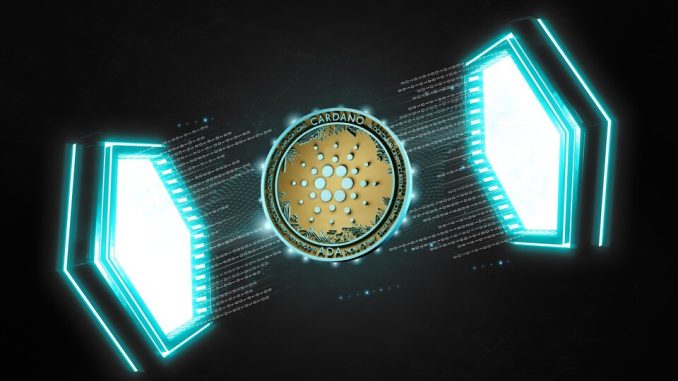
In an age of fast quantum computing growth, digital security is about to change. The complex world of quantum computing and its possible influence on cryptography are examined in this essay. The demand for quantum-resistant encryption grows as quantum computers threaten traditional cryptographic systems. This article discusses cryptography basics, quantum computing’s disruptive potential, present cryptographic system flaws, and quantum-resistant algorithms. A future where data security is essential requires comprehending cryptography technology’s developing dynamics.
The Fundamentals Of Cryptography
Cryptography is the digital age’s unsung hero, ensuring secure communication and data. Classical cryptography, rooted in ancient civilizations and battles, is now a sophisticated digital security tool. Cryptography is based on encryption, which turns plaintext into unreadable data.
Unauthorized parties cannot decode the original information using this encryption. PKI and symmetric key cryptography dominate the discipline. PKI utilizes public and private keys to encrypt and decrypt data, whereas symmetric key cryptography uses a shared secret key. Understanding these underlying ideas is crucial to assessing quantum computing’s influence on cryptography.
Quantum Computing: A Paradigm Shift
Quantum computing will revolutionize computation with unmatched processing capability. Quantum computing relies on the qubit, a unit that may exist in numerous states owing to superposition and entanglement. These unique properties enable quantum computers to do complicated computations at rates classical computers can only dream of. Techies are wary about quantum supremacy when quantum computers surpass traditional ones. Shor’s and Grover’s algorithms show how quantum computing might affect cryptography. Grover’s algorithm challenges hash functions and symmetric key encryption, whereas Shor’s approach threatens popular encryption methods.
Threats To Current Cryptographic Systems
Quantum computing technology is rapidly advancing, threatening cryptographic systems, the foundation of digital security. Classical encryption has protected sensitive data well, but quantum computers’ computing power might compromise these systems.
1. Breaking Rsa And Ecc Encryption
RSA (Rivest-Shamir-Adleman) and ECC (Elliptic Curve Cryptography) are two popular encryption algorithms that leverage mathematical problems that traditional computers cannot solve. Quantum computers, especially Shor’s algorithm, factor big numbers exponentially faster than conventional computers. Due to the difficulty of factoring two prime integers, RSA encryption is susceptible. Quantum computers may defeat ECC, which is efficient in key size and processing power.
2. Cryptographic Hash Functions Vulnerabilities
Digital security requires cryptographic hash functions for data integrity, digital signatures, and password hashing. However, Grover’s quantum approach challenges hash functions. Even with breaking hash functions, it considerably diminishes their efficacy. Grover’s technique lets quantum computers examine unsorted databases in quadratic time. Therefore, hash function security may be compromised.
3. The Future Of Secure Communication
Widely used cryptographic systems may be vulnerable, threatening safe communication. Quantum computers threaten confidentiality, data integrity, and authenticity, which underpin secure transmission. Quantum-resistant encryption is needed to secure sensitive data and contacts as quantum computing technology improves.
These quantum concerns push us to consider that our digital world’s cryptography protocols may need to change. To overcome quantum computer weaknesses, quantum-resistant cryptography approaches and post-quantum secure communication are required.
Post-quantum Cryptography
In response to the quantum danger, cryptography has created post-quantum cryptography to build algorithms that can survive quantum computer computing. These quantum-resistant algorithms use mathematical issues that quantum computers cannot answer, unlike traditional cryptography methods. Post-quantum cryptography offers new digital security techniques. This includes lattice-based, code-based, multivariate polynomial, and other developing encryption approaches. These quantum-resistant algorithms must be integrated into existing infrastructure to prepare for safe post-quantum communication.
Practical Implications And Challenges
Quantum computing and post-quantum cryptography provide practical obstacles as the digital world navigates the quantum revolution.
1. Transitioning To Quantum-resistant Cryptography
The necessity for quantum-resistant encryption is a significant consequence of quantum computing. Companies and people using classical cryptographic systems must use post-quantum cryptography to combat the quantum threat. This transformation requires implementing new encryption methods and integrating them into infrastructure. It needs a systematic methodology to smoothly transition to quantum-resistant encryption without sacrificing data security.
2. Cryptographic Agility In A Post-quantum World
The transition will allow conventional and post-quantum cryptography systems to coexist. Cryptographic agility—the capacity to swap encryption methods—is vital. This agility lets firms adjust to changing threats and protect their data. It requires protocols and standards to enable cryptographic system compatibility.
3. International Collaboration And Regulatory Frameworks
The research and implementation of post-quantum cryptography need worldwide cooperation. Cryptographic standards, norms, and regulatory frameworks should be adopted to unify worldwide digital security. To solve quantum computing’s complicated problems, governments, industry stakeholders, and cryptography specialists must collaborate. Regulatory organizations must handle privacy, data protection, and national security in the quantum era, which has changed the computing environment.
As the digital world prepares for the quantum revolution, practical issues, including quantum-resistant encryption, cryptographic agility, and international regulatory frameworks, will influence digital security. In an age when quantum computers redefine encryption and safety, our ability to traverse this complexity will decide data security.
Conclusion
The quantum revolution might upend traditional cryptography, the cornerstone of digital security. Understanding cryptography, quantum computing, and cryptographic system dangers is crucial. We aim for quantum-resistant algorithms in post-quantum cryptography to protect the digital world. In a quantum-powered world, cryptographic agility, international cooperation, and regulatory frameworks will protect data secrecy and integrity. Quantum computing is coming, and digital security is crucial to our future.






Leave a Reply